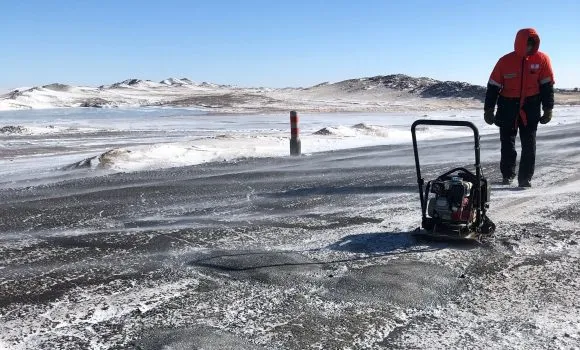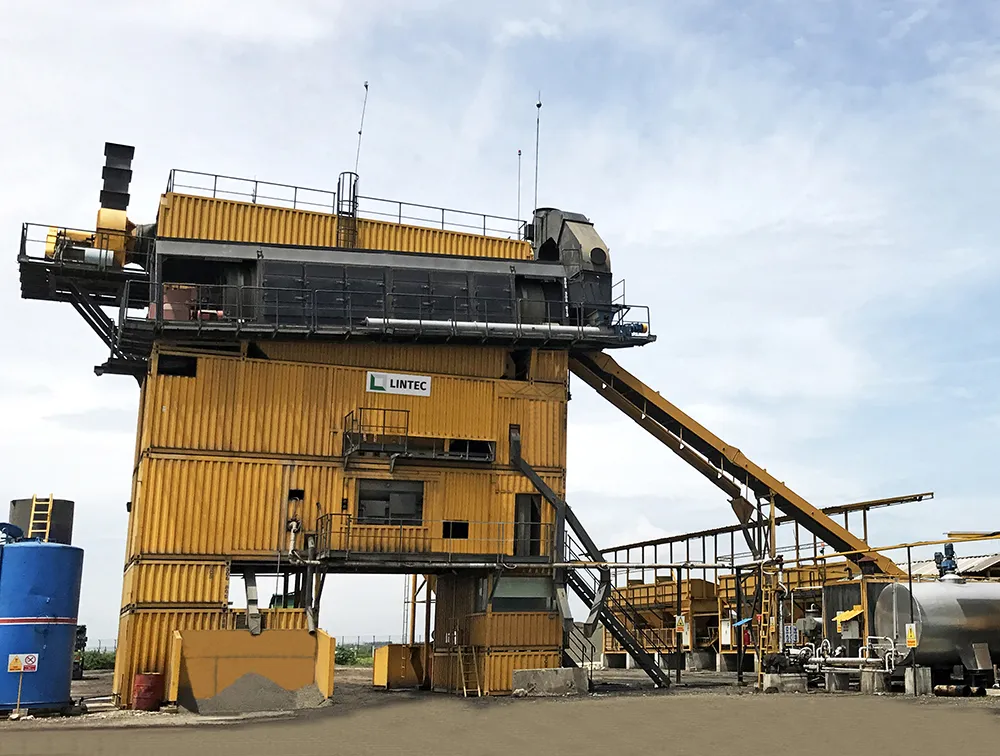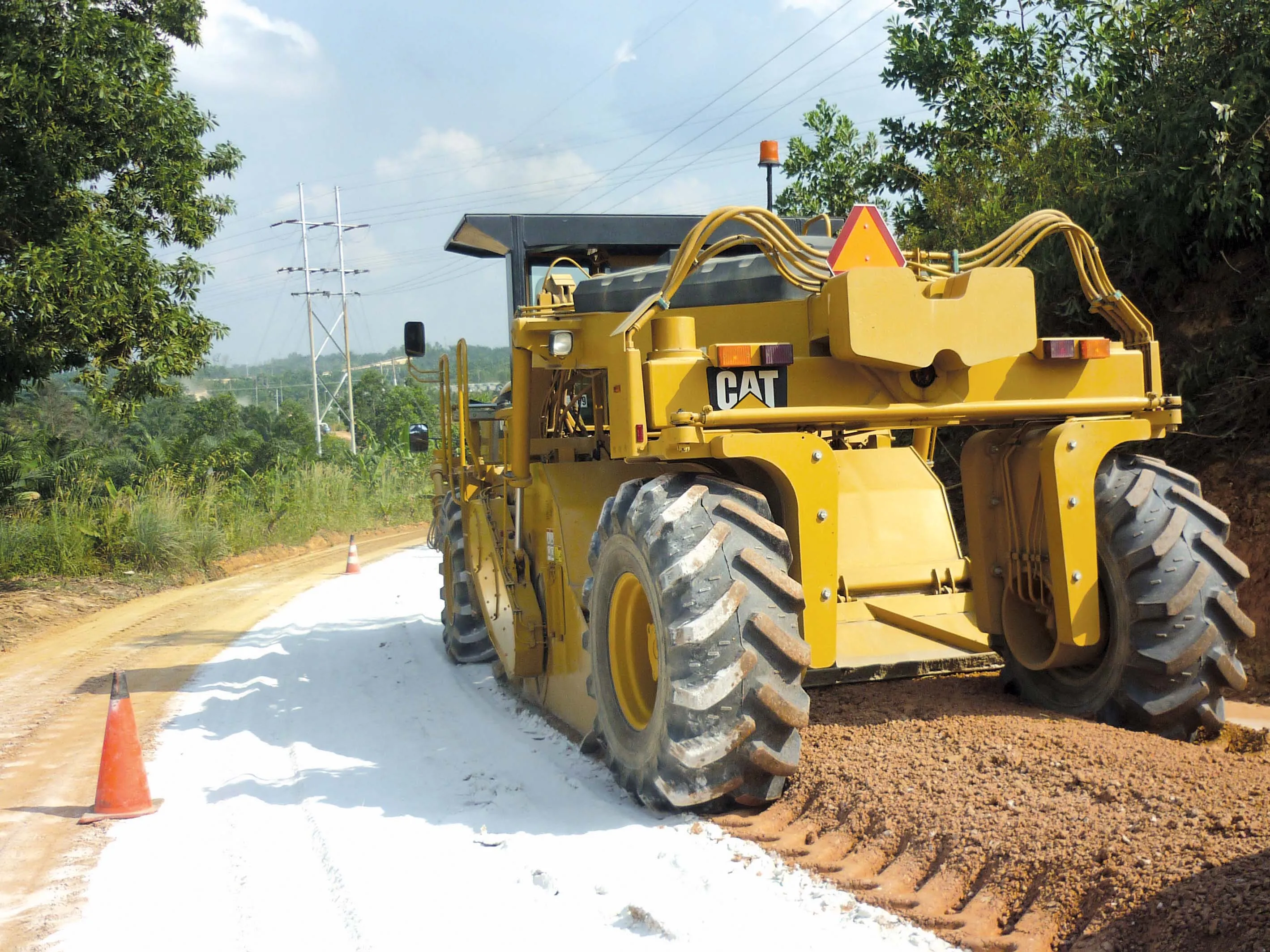
The Mongolian division of
Despite inclement weather, the performance of Bitumina’s BituFIX cold asphalt mix, was not affected.
“In Mongolia it’s still minus degree at night, but we made the first product of this year successfully and it’s performing pretty well.” said Ganshagai Battulga, chief executive of Bitumina Mongolia. “We started the project on February 13 and the condition was terrible when we first got there. It’s windy and snowing at -20C degrees but BituFIX did not fail us.”
Macisimo said that BituFIX’s performance during the winter attracted much attention at the three-day Mongolian Road Expo 2019 held in the capital Ulaanbaatar in October. During the Expo, Bitumina sealed deals on several substantial orders, said Battulga. “Our product-BituFIX became the hottest product during the Expo. It’s going famous among the people who work in this sector” says Battulga.
Macismo said it remains in discussion with Bitumina about Macisimo products to be used in the manufacture of bitumen emulsion.
Expo Mongolia usually highlights innovation and progress in the mining sector, mainly presenting mining technologies, equipment and devices. But this year it expanded its remit to cover water management issues regarding climate change, a major focus for many transportation authorities throughout the world.
Bituminia signed a five-year licence to sell their Bitufix cold asphalt mix. Only about 20% of the 50,000km of roads in Mongolia are asphalt paved roads. The remainder are dirt or gravel. In 2019, it the goal has been to have paved over 2,000km of roads completed to connect all province centres to Ulaanbaatar.








